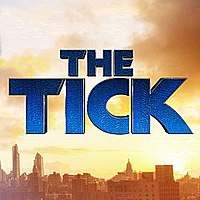:origin()/pre00/c9a1/th/pre/i/2019/105/4/9/red_dead_redemption_goty_edition__ps3__review_by_jmg124-dd4p9t8.jpg)
There is debate on when the concept of the open world saw its
introduction to the videogame industry, although some games as early as
the 1970s such as the text adventure game
Colossal Cave Adventure featured elements of the genre. Not until Rockstar Games’ 2011 title
Grand Theft Auto III
for the PlayStation 2 did the open-world concept see its influential
codification, with the developer during the seventh console generation
producing the American West-themed game
Red Dead Redemption in 2010. The following year saw its enhanced rerelease
Red Dead Redemption: Game of the Year Edition, proving an enjoyable game in the genre.
Redemption
focuses on protagonist John Marston as he traverses the declining
American frontier, with the former outlaw able to ride horses
(ultimately obtaining a wild one as his own sometime into the game),
drive or ride along in wagons, and wield different types of firearms. A
mechanic somewhat difficult to master is Dead Eye, where the player can
mark multiple targets to shoot in slow motion, though fortunately,
becoming proficient in this regard isn’t wholly necessary to complete
the game. Combat while controlling a horse or wagon can be somewhat
tedious, too, but the game luckily gives player some room for error at
least on Normal difficulty, and in the end, the game mechanics very much
work well.
While
Redemption does an excellent job for the
most part pointing players in the right direction, indicated by letters
on the in-game maps, other areas of control could have definitely used
more attention such as the inability to view the world’s map at a
campsite for fast-travel, the fact that saving the game manually always
passes time, and the aforementioned issues with engaging in combat
whilst controlling a form of transportation. Hearing-impaired gamers,
moreover, certainly won’t appreciate the inability to fast-forward
through text during cutscenes (although they’re entirely skippable), and
generally, interaction doesn’t severely hurt the game, but isn’t
perfect.
The game’s storyline focuses on the aforementioned
ex-outlaw John Marston visiting the American frontier in the year 1911
as an age of industrialism is shaping, performing tasks for the U.S.
government whilst is wife and son are hostage. The story is mostly
enjoyable, given its endearing character cast and development, although
the text is full of errors, and a sizeable excursion into Mexico is
accompanied by plenty untranslated Spanish dialogue, with no in-game
translation guide. Many gameplay clichés such as mandatory side-tasks
necessary to advance the storyline also play part, but regardless, the
narrative is a good driving factor.
Redemption features a
fitting Western soundtrack, along with superb voicework and sound
effects (as is expectant of a game of its generation), although there
are minor glitches regarding voices during travel.
The game’s
weak point is perhaps its graphics, which do a nice job reflecting
realism for the most part, although the framerate is frequently choppy,
along with pixilated texturing, frequent pop-up of environmental
elements during travel, and occasions that affect gameplay such as
attempts to domesticate horses where the camera constantly jerks around.
Finally,
the game took around eighteen hours to complete with this reviewer
largely shunning sidequests, although acquiring every Trophy can easily
boost playtime well beyond that range.
To conclude,
Red Dead Redemption
is for the most part a solid open-world game that hits most of the
right notes regarding its enjoyable gameplay systems, difficulty of
getting lost, good narrative, superb Western soundtrack and voice
acting, and plenty reason to keep on playing even after finishing the
central storyline. There are areas, however, that leave room for
improvement such as the frequent finnicky control, the need to sit
through voiced dialogue with no option to fast-forward through it,
occasional irritating gameplay clichés, the untranslated Spanish during
Marston’s adventure into Mexico, and the unpolished visuals. Regardless,
fans of open-world games in general will definitely find the game a
worthwhile purchase, especially at its discounted Greatest Hits price,
if they still have their PlayStation 3’s.
The Good:+Solid open-world gameplay.
+Mostly-clear direction on how to proceed.
+Good storyline.
+Great soundtrack and voicework.
+Trophies add plentiful lasting appeal.
The Bad:-Control can be a bit finnicky.
-No option to fast-forward through cutscene text.
-Some irritating plot/gameplay clichés.
-Spanish dialogue untranslated.
-Graphics haven’t aged well.
The Bottom Line:Not one of the greatest games of all time, but still an enjoyable romp.
Score Breakdown:Platform: PlayStation 3
Game Mechanics: 8/10
Controls: 6/10
Story: 7/10
Music/Sound: 9/10
Graphics: 5/10
Lasting Appeal: 10/10
Difficulty: Adjustable, relatively easy on Normal mode.
Playing Time: 16-24+ Hours
Overall: 7.5/10

:origin()/pre00/6897/th/pre/i/2019/120/2/f/porcine_park_ranger_by_jmg124-dd5uhh6.png)

:origin()/pre00/dc29/th/pre/f/2019/118/f/7/jordantejoncolor_by_jmg124-dd5ps9h.png)


:origin()/pre00/780f/th/pre/f/2019/115/1/8/sootywizardcolor_by_jmg124-dd5ghqh.png)

:origin()/pre00/ad0e/th/pre/i/2019/112/b/c/earth_day_2019_pic_by_jmg124-dd58zp4.png)


:origin()/pre00/ccd6/th/pre/f/2019/111/1/b/conductorharriscolor_by_jmg124-dd564qm.png)






:origin()/pre00/c9a1/th/pre/i/2019/105/4/9/red_dead_redemption_goty_edition__ps3__review_by_jmg124-dd4p9t8.jpg)
:origin()/pre00/e182/th/pre/f/2019/101/7/1/jordanbullrandcolor_by_jmg124-dd4dml4.png)

:origin()/pre00/d0e4/th/pre/f/2019/091/1/9/beetlejuicehyenacolor_by_jmg124-dd3l5nm.png)



